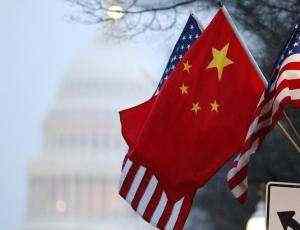Falling shares result from U.S.-China tensions; China GDP growth eclipsed

On Thursday, the international market had seen a plummet in the value of Asian shares and U.S. stock futures. It is seen to be caused by worries of a falling-out between the United States and China as well as the hit that global economies had taken with the resurgence of COVID-19 infections.
China’s unexpected economic rebound did not assure regional equities of better outlook.
The European market seems to be following suit with Euro Stoxx 50 futures sliding by 0.83%, German DAX futures by 0.73%, and FTSE futures by 0.53%.
MSCI’s broadest index of Asia-Pacific shares outside Japan went down by 1.18%. Tokyo’s Nikkei on the other hand fell by 0.74%. as U.S. S&P 500 e-mini stock futures slid by 0.43%.
Chinese shares fell by 1.59% as Australian stocks slid by 0.9% post the jobless rate recording high numbers since the 90s. Hong Kong and Seoul also experienced falling value of shares.
After an agreement reached by OPEC and ts allies to scale output back, Oil Futures fell. Excess supply thus became a renewed concern.
And because of the widening tension between the United States and China in connection with the conflict of who will assume the reins on technology and civil liberties protection in Hong Kong, risk appetite suffered a blow head-on.
Adding to the already complicated economic confusion, the resurgence of coronavirus infections caused renewed restrictions in select regions of the world. Regarding this, Masayuki Kichikawa, chief macro strategist at Sumitomo Mitsui (NYSE:SMFG) Asset Management Co. had this to say:
“The upside in financial markets is limited by the visible increase in coronavirus infections and tension between the world’s two economic giants…However, the downside is limited due to very low interest rates and a brighter outlook for China’s economy.”
Despite Chinese economy’s expansion by a better-than-expected 3.2% in the 2nd quarter the previous year, analysts agree that recovery is seen as uneven. While China’s industrial output exceeded expectations the month before, retail sales still fell.
On Wednesday, U.S. Secretary of State Mike Pompeo declared that the United States will be setting stringent visa restrictions on Chinese companies like Huawei Technologies Co. Ltd. with accusations of gross human rights violations.
Social Media apps TikTok and WeChat are also under the scrutiny of the United States, with President Donald Trump stating that due investigation will be done.
U.S. crude dropped by 0.78% to $40.88 a barrel. Meanwhile, Brent crude slipped by 0.62% to $43.52 per barrel, observing OPEC propositions in easing supply curbs.
The Australian dollar, the New Zealand dollar, and the Chinese yuan saw a decline in value when pit against the U.S. dollar.

